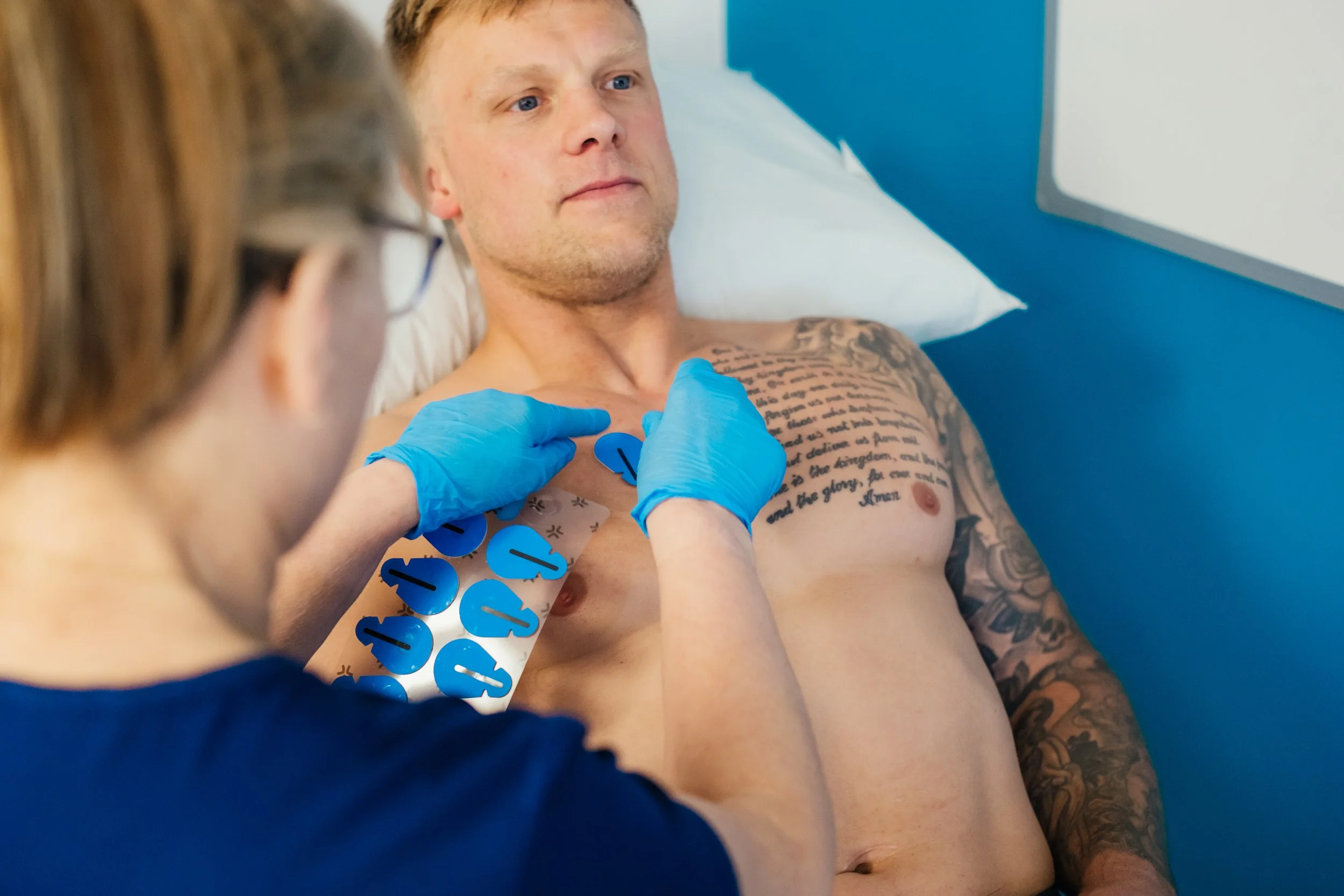
ECG
Medicals
About the Medical
What is a ESG?
Chester Step Tests are a tried and testing means of gauging fitness. This is done by measuring the heart’s ability to recover from exertion. To achieve this, the test consists of stepping onto and off a 30 cm / 12-inch step at a rate set by a metronome. During this test, your heart rate will be monitored and results will be plotted on a graph providing aerobic capacity and fitness.
-
For an ECG, the procedure typically involves a healthcare professional attaching small, sticky pads called electrodes to your chest, arms, and legs. Wires connect these electrodes to an ECG machine, which records the electrical signals from your heart. You'll usually be asked to lie still and relax during a resting ECG.
-
Wear comfortable clothing: A two-piece outfit that's easy to take off and put back on is recommended, as you'll need to remove your upper clothing for the electrodes to be attached.
Avoid creams and lotions: Don't apply body lotions, oils, or talcum powder to your skin before the test, as this can interfere with the electrodes' ability to stick properly.
Remove jewellery: You'll likely be asked to remove any metal jewellery, particularly necklaces.
Medications: Unless you've been specifically told otherwise by your doctor, you can usually continue taking your medications as normal before the test. However, it's always best to inform the healthcare professional doing the ECG about any medications you are taking.
Hair: If you have a hairy chest, a small area may need to be shaved to ensure good contact for the electrodes.
Food and drink: For most ECGs, you can eat and drink as normal before the test. However, some hospitals may advise against eating a heavy meal or having caffeine before an exercise ECG (stress test).
Our Medical Doctor
Christine has vast experience in maritime medicine, having provided advice and medical support for diverse organisations for both diving and seafaring medical issues.
Christine has worked extensively in hyperbaric units both in the UK and Australia for civilian and military organisations, including provision of medical support onboard research vessels, for submarine escape training and tunnelling projects.
Christine has dived extensively around the UK and worldwide and was co-owner of a UK based dive liveaboard. Doctor, diver, sailor and GP.
Common QuestionsHere are the answers to the most frequently asked ones to help you get started.
-
Yes. Please email info@aquamarinemedicals.co.uk with your preferred date from the online available dates. The cost is the more expensive medical plus £50 for the additional medical certificate.
-
Please email info@aquamarinemedicals.co.uk to arrange this in advance.
-
We will do our best to accommodate changes but if there is less than 48 hours notice, the amount paid is not refundable.
-
Reasons for this will be discussed with you at the time of the medical, with reference to the appropriate guidelines. Sometimes a person may ‘temporarily’ fail a medical, pending further information which may be required from their GP or Consultant. Any charge from a GP or Consultant for providing this information is the responsibility of the person undergoing the medical.
There is no refund for failed medicals as the medical has still been undertaken.
-
No. Medicals currently are exempt from VAT in the UK.

